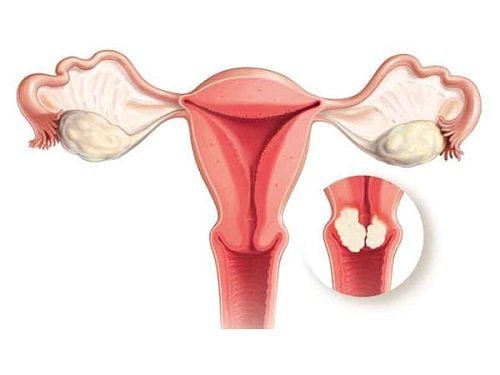This is an automatically translated article.
About 20% of women will experience adhesions after an abortion. Most women with uterine adhesions after abortion will find it very difficult to get pregnant or get pregnant if they are not treated and intervened in time.
1. What is an abortion?
Aspiration abortion is a method of using suction tubes and vacuum pumps to suck the fetus out of the mother's body for fetuses less than 12 weeks old. The period of safe abortion and the fewest complications is from 4 to 8 weeks. However, with the fetus having an older week and not being able to apply the suction method, the abortion must be performed. The abortion method uses a metal tool shaped like a spoon to remove the pregnancy. The method of abortion is often combined with dilatation with an instrument or a forceps.
Abortion is a safe procedure if performed in a medical facility, but like any surgery, there are certain risks involved. Some consequences of abortion include: uterine perforation, uterine infection, uterine bleeding, uterine adhesions, also known as Asherman's syndrome,...
See now: Uterine adhesions: Causes of female infertility
2. Why is it easy to stick to the uterus after abortion?
Adhesions, also known as Asherman's syndrome, is an acquired (non-genetic) syndrome involving the formation of adhesions or bands of scar tissue in the uterus. The uterus causes the uterine walls to stick together, thereby reducing the size of the uterus and making it difficult for subsequent conceptions. Adhesions to the uterus are common in women with multiple abortions.
So why is there a phenomenon of uterine adhesions after abortion? As we all know, the uterine structure in women consists of 3 layers in order from the outside to the uterine lining, the uterine muscle layer and the mucosal layer. In particular, the innermost mucosal layer is formed from two layers, the functional layer is above and the basal layer is below. During each menstrual cycle of a woman, the upper layer of function is shed and is excreted in the form of menstrual blood. At this point, the basal layer regenerates the sloughed functional endothelium. Asherman syndrome or uterine adhesions are directly related to these two layers of endometrium. Interventions in the uterine cavity such as curettage, abortion have risks of damage to the uterus, perforation or infection leading to the formation of scar tissue (adhesion) in the uterus, which is the cause of adhesions Uterine .

Dính buồng tử cung sau hút thai làm giảm kích thước tử cung
3. Signs of uterine adhesions?
Common symptoms of uterine adhesions are:
Menstrual irregularities (oligomenorrhea). Amenorrhea (amenorrhea). Cramping or severe pain. Can't get pregnant or get pregnant. However, some women have no symptoms and still have normal periods.
4. Can uterine adhesions be prevented and treated?
Some researchers suggest that women who have had any type of uterine surgery or have had a uterine injury should also be treated with hormones or mechanically separate the uterine wall after the procedure to prevent the phenomenon. uterine adhesions. This means that a stent is placed in the uterus for a period of time to prevent adhesions.
And the good news for women is that uterine wall adhesions can be treated surgically to separate the adhesions and reconstruct the uterine cavity to the correct shape and size or insert an intrauterine device to separate the uterus. sticky part. Depending on the extent and condition of the uterine adhesions, the doctor will advise the appropriate treatment method to help you have a normal pregnancy.
In order to help customers detect gynecological diseases, Vinmec International General Hospital has a basic gynecological examination and screening package, helping customers to detect early infectious diseases for easy treatment, inexpensive. Screening detects gynecological cancer (cervical cancer) early even when there are no symptoms.
Basic gynecological examination and screening package for female customers, has no age limit and may have the following symptoms:
Abnormal vaginal bleeding Having menstrual problems: irregular menstrual cycle, irregular menstrual cycle Irregular vaginal discharge (smell, different color) Vaginal pain and itching Female clients have several risk factors such as poor personal hygiene, Unsafe sex, abortion,... Female clients have other symptoms such as: abnormal vaginal discharge, itching, pain in the intimate area, abnormal vaginal bleeding, delayed pregnancy.
Please dial HOTLINE for more information or register for an appointment HERE. Download MyVinmec app to make appointments faster and to manage your bookings easily.













